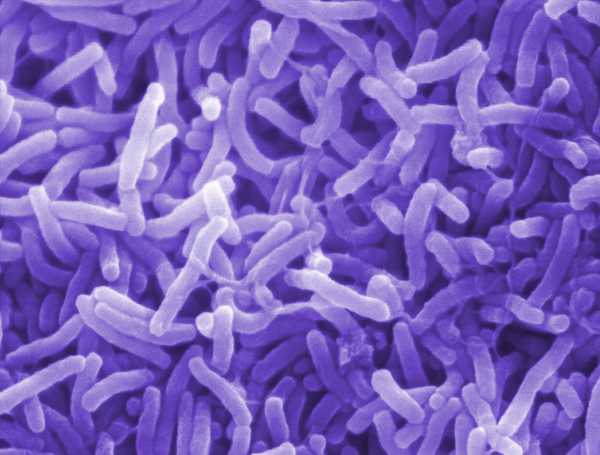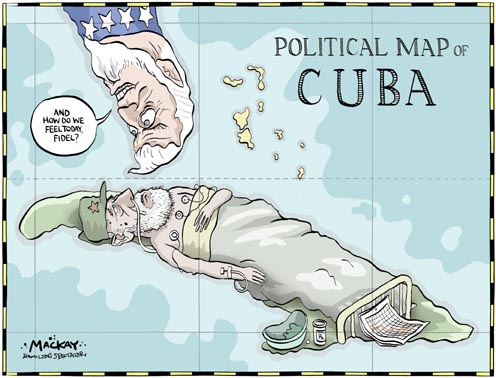Cuba Conceals Cholera Outbreak

Media silence in the Caribbean is not necessarily good for Cuba, the island known in and around the world for its health care, tourism, and socialist economy. One should also recall the campaign Cuba had in the 1960s to produce 10 million tons of sugar in which it fell millions of tons short without fully informing its citizens. [1] The culprit today is the thoroughly unpleasant and sometimes fatal disease of cholera. While only two deaths have occurred in recent weeks in Cuba out of the 500 cases that have been reported so far since the current outbreak, [2] the actual figure is not known at the present. [3] In order to keep local panic to a minimum, the island has tried to prevent reports from being leaked. Travel to Cuba attracts hundreds of thousands of European, Canadian, and Latin American tourists every year, generating $2.5 billion USD in 2012. [4] Tourist officials on the island have taken on the audacious task of trying to keep news of the disease from circulating. Although none of these countries have acted to prevent their citizens from traveling to Cuba, some officials from affected countries, such as the United Kingdom and Canada, have issued advisories recommending that foreign visitors take additional precautions when it comes to purchases of consumed food and water. [5] The shaky U.S. and Cuban relations have also caused the United States to not make any official statements about the outbreak. No foreign tourists have, as of yet, contracted cholera in Cuba, but it would only take one reported case to spark widespread concern and blemish Cuba’s highly regarded tourist reputation. Cuba is sensitive to the fact that cholera outbreaks cause additional stigma to underdeveloped countries, resulting in a heightened reputation for poverty and vulnerability.
There is no doubt that the Cuban Ministry of Public Health issues a wealth of practicable information on cholera, including detailed books and training procedures. [6] However, the Ministry has unyieldingly refused to distribute much of this material to the island’s residents, prompting a significant amount of scrutiny from the outside world, which is increasingly aware of this medical problem. Cholera is easily treatable when diagnosed, with a low mortality rate, if the disease is promptly treated. Up to 80 percent of cholera cases are treatable simply through the use of rehydration salts, while less than one percent of all cases are fatal. [7]
Having long dealt with cholera related issues, Cuba routinely has sent medical aid workers, as well as instructors, to teach professional medicine on a worldwide basis during natural disasters, in other countries ranging from earthquakes to hurricanes relief missions. In 2010, the Castro administration sent doctors and major supply shipments to Haiti to help deal with their ongoing cholera epidemic. [8] In 2011, Cuba’s Ministry of Public Health realized that aid workers returning from Haiti might have carried with them to the island the possibility of a future cholera outbreak. [9] While Havana officials were fully aware of the potential danger to the health of the local population, low level officials were not sharing information with members of the community and failed to take necessary precautions.
Ironically, the Caribbean island has had a long history of rallying its people for grassroot efforts on health and national issues. During the National Literacy Campaign in 1961, the country achieved a literacy rate of 99.8 percent, [10] with Cubans from all walks of life traveling throughout the country and teaching, on a person to person basis, people from all demographics to read. The Pan American Health Organization (PAHO), a branch of the World Health Organization, has recommended that with the confirmation of cholera cases in Cuba: “In an outbreak situation the following measures are recommended:
• Intensified surveillance with the inclusion of active case finding.
• Laboratory confirmation to monitor the geographic spread and the resistance pattern.
• Weekly analysis of the number of cases and deaths by age, sex, geographical location, and hospital admission.” [11]
PAHO also set out what actions Cuba must take to strengthen “public health education awareness with an emphasis on hand hygiene and safe food and drinkable water…while continuing to take action to ensure the supply of drinkable water as well as the strict control of food products.” [12] In order to eradicate cholera on the island, Cuba needs to apply its past successful grassroots experience.

Regardless of whether the Castro government’s concern with its image had warranted bookkeeping at the time, its failure to address the problem by not adopting PAHO’s basic audited recommendations was irresponsible and resulted in a number of long term negative consequences. Countries with citizens currently visiting Cuba must issue warnings pressuring Havana to step up its cholera eradication. This would leave Cuba with no choice but to inform its citizens and keep record so the international community could be aware of this information. Any less dependability could present a costly mistake for Cuba’s reputation with all but critical indicators and findings.
Jennifer Aron, Research Associate at the Council on Hemispheric Affairs
Please accept this article as a free contribution from COHA, but if re-posting, please afford authorial and institutional attribution. Exclusive rights can be negotiated.
For additional news or analysis on Latin America, please go to: Latin News
References
[1] Leogrande, William, and Thomas, Julia M., “Cuba’s Quest for Economic Independence,” Journal of Latin American Studies 34, no. 2 (May 2002): 325-363, http://www.jstor.org/stable/3875792.
[2] Robinson, Circles, “Cholera Outbreak Resurfaces in Holguin,” Havana Times, February 5, 2013, http://www.havanatimes.org/?p=87148.
[3] “Epidemiological Alert: Cholera Situation Update,” Pan American Health Organization, November 2, 2012, http://new.paho.org/hq/index.php?option=com_docman&task=doc_view&gid=19243&Itemid.
[4] Associated Press, “New Cholera Outbreak in Cuba Calls Countries to Restrict Travel,” Fox News Latino, January 16, 2013, http://latino.foxnews.com/latino/health/2013/01/16/new-cholera-outbreak-calls-countries-to-restrict-travel-to-cuba/.
[5] “Travel North and Central America and Caribbean: Cuba,” Foreign and Commonwealth Office, last modified January 17, 2013, http://www.fco.gov.uk/en/travel-and-living-abroad/travel-advice-by-country/north-central-america/cuba.
[6] Acosta, José Antonio Gonzáles, MSc.Dr., and Dr. Rogelio Pentón Depestre, “Cómo tratar el cólera en las gestantes y puérperas,” Acta Médica del Centro 5, no. 1 (2011), http://www.actamedica.sld.cu/r1_11/colera.htm.
[7] World Health Organization, “WHO position paper on Oral Rehydration Salts to reduce mortality from cholera”, Global Task Force on Cholera Control, 2013, accessed 19 Feb 2013, http://www.who.int/cholera/technical/en/.
[8] Archibold, Randal C., “Cuba Takes Lead Role in Haiti’s Cholera Fight,” The New York Times, November 7, 2011, http://www.nytimes.com/2011/11/08/world/americas/in-haitis-cholera-fight-cuba-takes-lead-role.html?pagewanted=all&_r=0.
[9] Acosta, José Antonio Gonzáles, MSc.Dr., and Dr. Rogelio Pentón Depestre, “Cómo tratar el cólera en las gestantes y puérperas,” Acta Médica del Centro 5, no. 1 (2011), http://www.actamedica.sld.cu/r1_11/colera.htm.
[10] “Cuba,” The CIA World Fact Book, 2013, last modified February 5, 2013, https://www.ciagov/library/publications/the-world-factbook/geos/cu.html.
[11] “Epidemiological Alert: Cholera Situation Update,” Pan American Health Organization, November 2, 2012, http://new.paho.org/hq/index.php?option=com_docman&task=doc_view&gid=19243&Itemid.
[12] Ibid.

